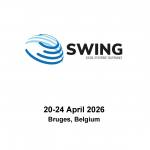Public PhD Defence of Reinhilde Bouckaert: UNU-CRIS PhD Fellow

On Monday, 30 June 2025 at 10.00, the public PhD Defence of Reinhilde Bouckaert on "The EU’s relationship with fossil fuel suppliers: business as usual or energy transition?" will take place in the Baudelo Room, Bijlokesite, Godshuizenlaan 2, 9000 Ghent.
Supervisor: Prof. Dr. Claire Dupont
Please click here to register (in-person and online) or confirm your attendance no later than 18 June by email to reinhilde.bouckaert@ugent.be

The EU has increasingly focused on renewable energy to achieve its climate goals and to strengthen energy security since at least 2000. Also globally, the energy transformation gets a foothold bringing a diverse set of benefits including for the climate, increased job creation, less geopolitical disruptions and democratisation effects. However, the EU's climate objectives combined with the expected global peak in fossil fuel demand could have serious consequences for many fossil fuel suppliers dependent on rents for their political survival. When hydrocarbon demand diminishes, fossil fuel rents and subsidies are expected to fall, which could trigger uprisings and make these countries prone to enduring instability. For decades, the EU has relied on fossil fuel imports from fossil fuel-producing neighbours, including Algeria. While the above indicates that it is essential to prepare for this energy transition, considering as well the fossil fuel-supplying countries, it remains unclear how and why the EU has anticipated and prepared for this change in its relationships and to which results.
This dissertation examines the changes in relations between the EU and its fossil fuel suppliers in the context of the energy transition, using Algeria as an example. The research question is as follows: ‘Has the EU’s energy relationship changed with fossil fuel suppliers since the year 2000, how and why?’. This dissertation examines some important critical gaps in the scientific discourse. First, it examines the interinstitutional dynamic between the Commission and the member states through three integration theories: historical institutionalism, supranationalism and new intergovernmentalism. Second, it aims to contribute to the debate on the evolution of the EU in crisis through the theory on critical junctures. Third, it focuses on the impact on the change in competences of the EU on the power relations with rentier states. Last, this dissertation aims to contribute to the rentier state theory through creating a novel analytical framework on the transition towards a post-rentier state using Algeria as an example.
This dissertation finds that the EU’s clean energy actorness towards Algeria increased and some change in the direction of a post-rentier state has been achieved. However, this did not result in the institutionalisation of a post-rentier state in Algeria. This because of a lack of alignment between the EU and member states during critical junctures and a remaining dependency of the EU on fossil fuels. This causes an interruption of the path towards change when fossil fuel prices rise. This dissertation also finds that short-term interruption in alignment can undermine efforts towards change, causing a reversion to the status quo or could have long term consequences e.g. lock-in or stranded assets as well as a diminishment of the trustworthiness of the EU. Furthermore, earlier versions of the theoretical and analytical approaches often failed to adopt a holistic view taking into account the political, economic and historical dimensions of its trading partners.
Upcoming Events
Similar Events
No events found.



